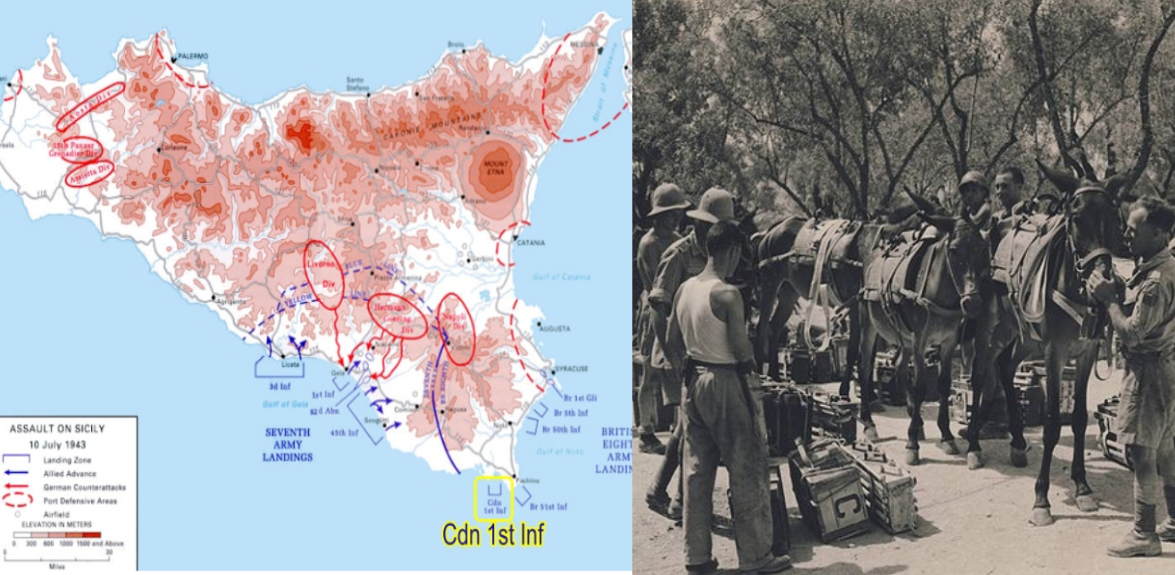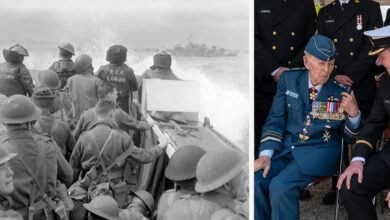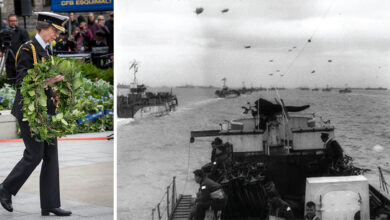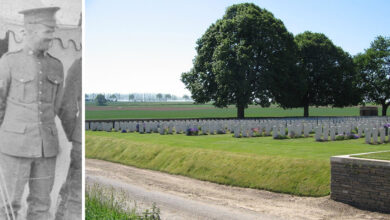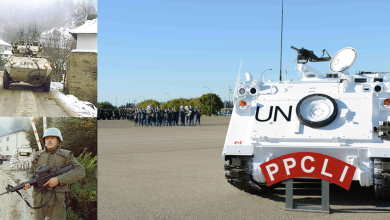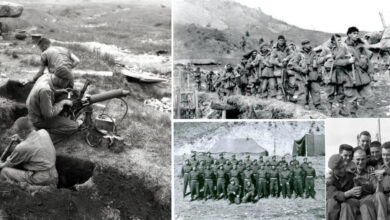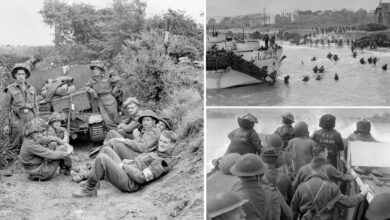History
Remembering Operation Husky
Though sometimes overlooked by the larger invasions of the Second World War, the Italian Campaign played a significant role in the fight against the Axis powers. Canadian soldiers played a major part in the Italian Campaign and Operation Husky, the codename for the invasion of Sicily,
In the midst of the Second World War, the Allied Forces made the decision in early 1943, after the defeat of the Axis Forces in North Africa, to take a strong position on the European continent and invade Italy.
Canadians played a large contributing role to Operation Husky, the invasion of Sicily. However, according to Dr. Jeff Noakes, a Second World War historian at the Canadian War Museum, Canadians initially were not supposed to be part of the Campaign and plans were later changed.
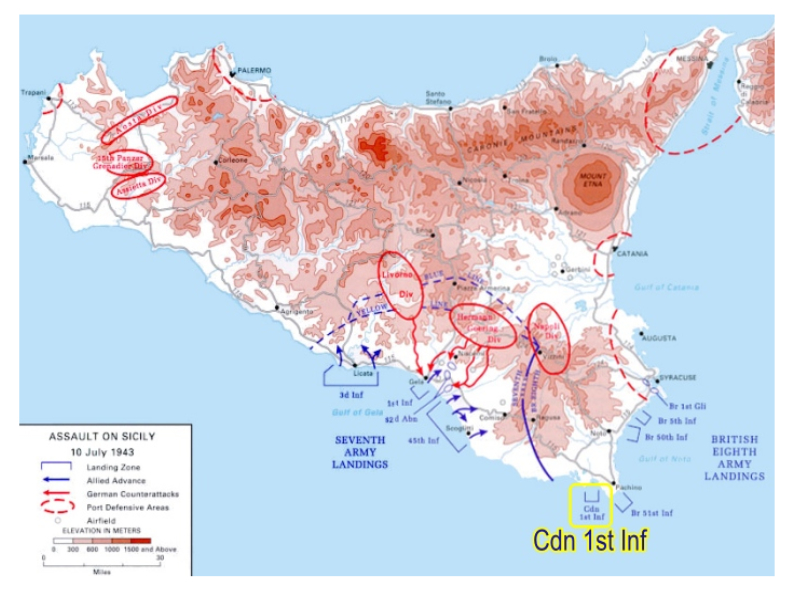
Difficult Journey
Canadians had to make a difficult journey from Scotland around to Italy, where 58 Canadians drowned in attacks en route to Italy.
“Normally when people think of an invasion they might think of D-Day where you’re crossing the English Channel. In this case, they’re sailing all the way from Scotland into the Mediterranean then landing in Sicily. So, it’s quite the sea voyage before the landings,” stated Noakes.
It was morning on July 10, 1943, that Canadian and British troops came ashore near Pacino, on the coast of Italy, for the invasion. More than 26,000 Canadians had made the journey from Scotland for Operation Husky. Canadian involvement also included the presence of the Royal Canadian Air Force, three bomber squadrons temporarily relocated to Tunisian bases to support the Sicily landings. Meanwhile, the Royal Canadian Navy operated some of the flotillas of landing craft that took Allied forces ashore in Sicily.
The arriving Canadians not only had to fight the German enemy force waiting, but also had to battle against a very hot climate and difficult terrain.
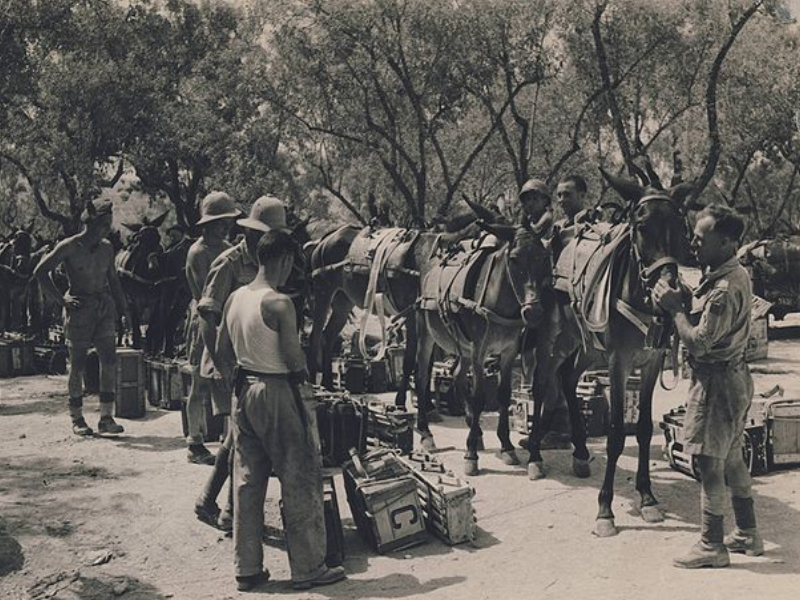
Considered a Success
Ultimately, Operation Husky was considered a success.
“It marks the returns of the Western Allies to the European Continent. This is after the fighting in North Africa, the war has been actually, physically brought into Europe, directly brought against one of the Axis powers, in this case, Italy,” observed Noakes.
However, the success came at the cost of almost 2,300 casualties, including 562 dead.
Operation Husky and the ensuing Italian Campaign had a positive outcome for the Allied Forces during the Second World War.“One of the other things it does, and this becomes an increasingly important objective as the Italian campaign proceeds especially from late 1943 onwards, is that it also becomes a way in which German forces can be tied down and kept from going elsewhere. The Germans have to mount a considerable effort to defend Italy,” remarked Noakes.
The Italian Campaign had far-reaching consequences for the Italians as the country’s leader Benito Mussolini was overthrown, and later leading Italy to reach an armistice with the Allied Forces.
Canadians were to remain in Italy until 1945. Nearly 93,000 Canadian soldiers served in the campaign and more than a quarter became casualties, including 5,764 dead.
“It’s a very long campaign for Canadians who are involved and often a lot of it tends to attract less attention than the fighting in northwest Europe, especially after the D-Day invasion. So, sometimes people don’t think of the Italian Campaign as readily as they might have read about fighting on other fronts in Europe,” said Noakes.
However, the traces of this campaign can be seen in Canadian military culture. The Royal Canadian Regiment (RCR) commemorates the campaign on July 10 by celebrating “Pacino Day.” RCR units hold various events to commemorate the day and some continue the tradition of dining on spaghetti and red wine, that is said to be how Canadian troops celebrated the victory in the Second World War.
The Italian campaign also gave rise to one of Canada’s most well-known combat memoirs: And No Birds Sang by Farley Mowat.


